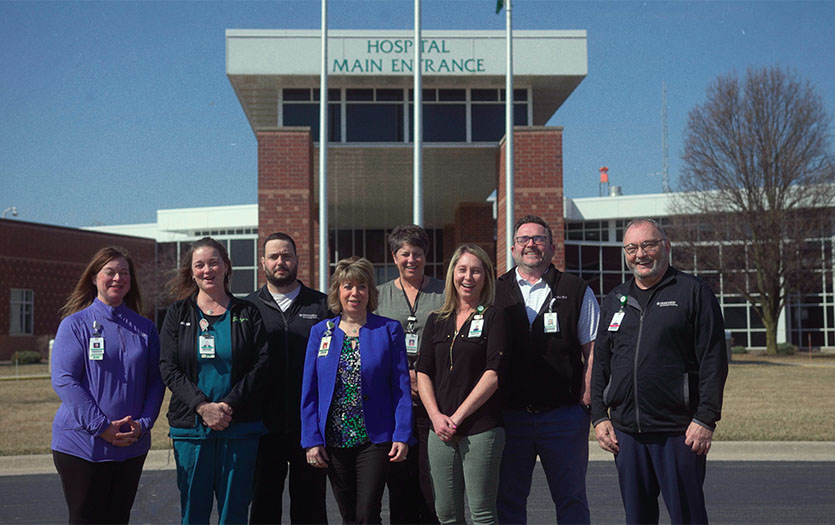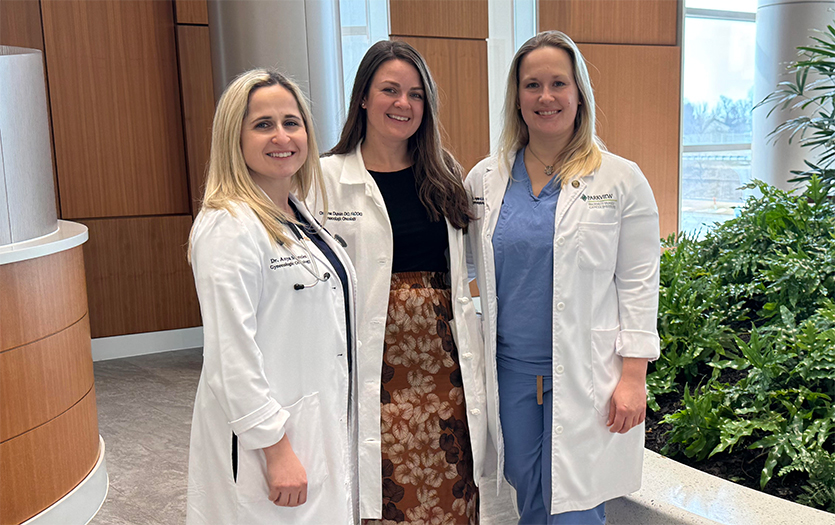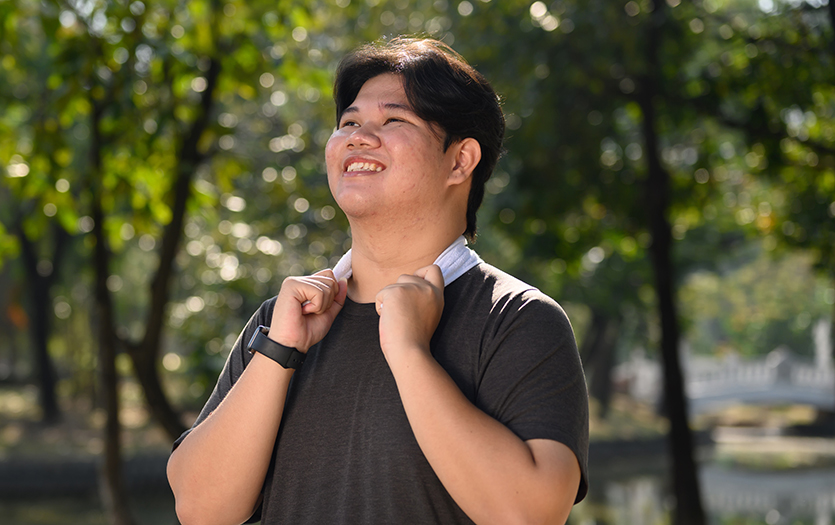
Please enjoy this interview with Karen Kosberg, chaplain, Parkview Home Health and Hospice.
I was a chaplain at a long term care facility and wanted to gain experience and education, so I decided to take clinical pastoral education at Parkview. It gave me the opportunity to do some clinical work in the hospital as a chaplain, offered peer groups, self-evaluation and supervision. Around the time my education was coming to an end, Parkview was starting its hospice program and they were looking for a chaplain. I’d always felt a calling to ministry and I wasn’t sure where it would lead, but as I made my way along, end of life care and building those relationships fit who I am. I’ve been with Parkview for 22 years now.
The role of a hospice chaplain
With Parkview hospice, we see the patient holistically – body, mind and spirit. As chaplains, our goal is to try and meet families at least once to assess their needs and let them know who we are and build a rapport. Our nurses and aids are there to make sure patients are comfortable in their bodies, but chaplains are there to make sure they have comfort and peace in their heart, soul and spirit. That’s the part I pay attention to.
Assessing a patient’s needs
Once I meet the patient and their caregivers, I assess what their needs are. Some are well supported by their faith community, so I walk alongside them. Some have had that connection, but aren’t connected anymore, so I sometimes have the opportunity and great joy of reconnecting them to their faith community, which is so important. Depending on what support they want, I provide that or seek resources in the community. We’re all spiritual people, even though how we live that out might be different.
For hospice patients, it’s so important for them to think through their relationships with people in their lives, including the regrets, hurts and places where they need to make amends. It's also beneficial to examine their relationship with their selves, reviewing their life and where they’ve been, accomplishments and where they find meaning. I think of it like this: In real estate, it’s all about location, location, location. For me, everything is relationship, relationship, relationship. Relationship with the divine, with loved ones and with self.
Managing spiritual hurt
The frequency and duration of my visits really depends on the patient. I have come to realize, through reading and experience in this role, that dying people have certain needs. One is obviously to be comfortable, without pain and to have symptoms managed. Another is to be with the people they love. But I have found that they also need to find meaning in their lives. They need to review their life, explore and share their thoughts about what’s ahead, after death, and the things they need yet to talk through with their family. To me, that’s all spiritual.
Sometimes people have physical pain, but sometimes they have spiritual pain. I help them work through offering forgiveness, to themselves or others. I had a patient who was distant from his son, emotionally. The son lived out east and it was clear that there was tension there. When I would visit the patient, he was very anxious, walking around, not settled. The nurse was working on his unease from a physical standpoint, but as we talked, I realized he had spiritual pain as well, from this broken relationship.
So, we talked through what we could do to give him some peace, including reaching out to his son, and what it would mean if he didn’t respond. He did reach out and they did come together, and that eased his spirit. Those things are so important. Sometimes physical pain and emotional pain go together. If we can relieve some of that emotional pain, that can ease the body, too. And that goes both ways. If we get the body’s pain under control, that can relieve the spirit. We’re all interconnected.
Joining the journey
The most rewarding thing for me is seeing the courage, and the strength, and the love, and the commitment of patients as they face leaving this world and leaving their loved ones. The honesty with which they do that is amazing. This job is hard work, it’s not easy, and yet I witness the courage and commitment of those around these patients, caring for them, all the way through. When you see people come together to care for someone they love as they’re dying, it’s very rewarding.
It’s such a sacred time; When a person is letting go of what they know and who they love and reaching out to the next place. Being part of helping them make that journey, walking with them, is an honor to me and what gets me through tough days.
Observing grace
There are certain cases I carry with me. I had a patient who had a beautiful way of making this journey. She knew it was happening, she was honest about her fears over the end and not wanting to be in pain, her sadness about leaving her siblings and friends. She wanted everything taken care of so family didn’t have to worry, and made that journey still caring for those around her.
I saw her every week and she talked about her life and how it had prepared her for this moment. She had a close connection with her faith community and that gave her strength. She kept a journal, and I would come and she’d have questions or thoughts written down from our last visit. She was so thoughtful and such an inspiration, demonstrating how people can do this with grace, dignity and humor. She found the funny things even in the hard things. That doesn’t always happen – that sense of God and peace and strength and honesty. I will never forget her.
Not every case is that way, but if we can just walk with them, wherever they are, in grief and letting go, if I can be a safe person where they can share their feelings, thoughts, fears, joys, then I’ve done my job.
Supporting families
I find that the majority of the time, the person who’s dying isn’t so much worried about themselves, as they’re worried about their loved ones. When they can see that our team is going to support their family during this journey and afterward that gives them peace.
Our nurses and aides support families with the medical aspects. They’re there to answer questions about what’s happening. I am there for the emotional and spiritual support. I walk with them in their grief, allowing them to work through it and any relationship dynamics. I encourage them in the hard work they’re doing and listen. Caring for the patient means caring for the people are caring for them.
Leading patients toward peace
One of the things that brings patients peace is the trust that there will be a healing and wholeness ahead for them, and that the people they love will be OK. They want the assurance that they are loved and will be remembered. That they will be held in the hearts of those who know and love them, and to know that their life mattered here. I often encourage loved ones to share with the person passing away how much they meant to help. It helps the family find peace in letting go as well.
I want to connect the patient with the spiritual traditions that mean the most to them. Depending on their beliefs, I facilitate what’s important to them at that time. It might be a certain prayer or ritual. It might be something else. We had a Buddhist patient and he wanted a Buddhist monk to perform certain rituals and prayers. At that time, we didn’t have one locally, so I reached to a monk in Lansing who was able to come and support the patient. It’s our job to respect and understand the diversity of spirituality and find out what will bring that patient and their family peace.
To receive more information or refer a friend or family member for hospice care, call (260) 373-9800 or 800-363-9977, or visit parkview.com/hospice.



